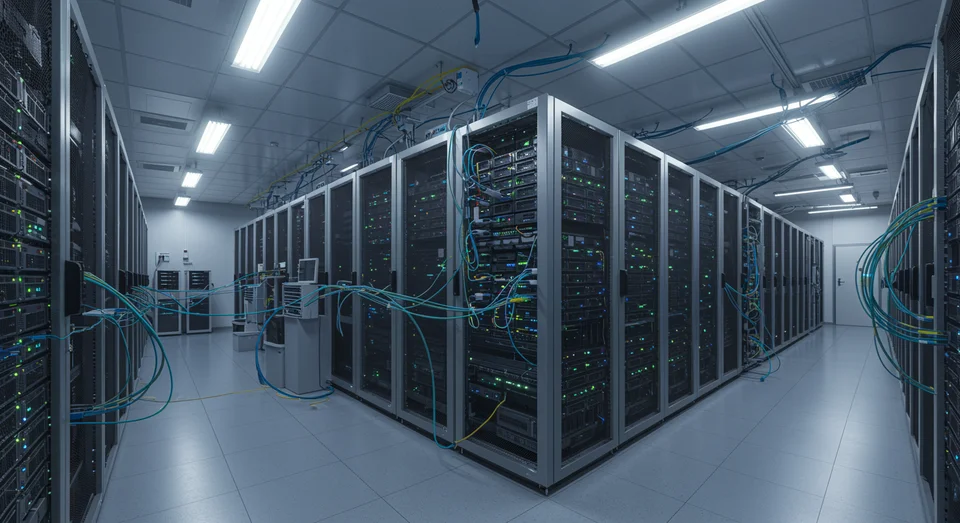Centralized Data Repositories Revolutionize Global Healthcare Data Management
24 views
Healthcare systems across the globe are grappling with the monumental task of managing an ever-growing volume of patient data, a challenge that threatens to outpace traditional methods of record-keeping and data sharing. In response, centralized data repositories have emerged as a transformative solution, promising to revolutionize the way medical information is stored, accessed, and utilized. By consolidating fragmented records and harnessing cutting-edge technologies, these repositories aim to address inefficiencies, bolster security, and pave the way for seamless interoperability—hallmarks of a modern, patient-centered healthcare system.
Centralized Data Repositories: A New Era in Healthcare Information Management
The concept of centralized repositories is not new, but their application in healthcare has gained urgency as the industry faces mounting pressure to deliver faster, more accurate care. At the heart of this shift lies the need to unify disparate data sources—ranging from electronic health records (EHRs) and diagnostic imaging to pharmacy logs and wearable device outputs—into a singular, cohesive system. By doing so, healthcare providers can eliminate redundancies, reduce errors, and ensure that clinicians have real-time access to comprehensive patient histories.

One of the key enablers of this transformation is the adoption of microservices and cloud-native architectures. Unlike monolithic systems, which are cumbersome and prone to bottlenecks, microservices break down applications into smaller, modular components. These components can be developed, deployed, and scaled independently, offering unparalleled flexibility and responsiveness. When coupled with cloud infrastructure, they provide the scalability needed to accommodate surging data volumes without compromising performance.
Equally significant is the integration of Fast Healthcare Interoperability Resources (FHIR) standards, which facilitate seamless data exchange between systems. Developed by Health Level Seven International (HL7), FHIR ensures that data is structured in a way that is both machine-readable and human-interpretable, enabling interoperability on a global scale. This is particularly crucial in an era where healthcare is increasingly collaborative, often involving multiple providers and institutions across different regions.
However, the benefits of centralized repositories extend beyond mere efficiency. Advanced security protocols, such as end-to-end encryption and role-based access control, are integral to safeguarding sensitive patient information. These measures not only protect against cyber threats but also ensure compliance with stringent data protection regulations like the General Data Protection Regulation (GDPR) and the Health Insurance Portability and Accountability Act (HIPAA). By reducing the risk of unauthorized access, healthcare organizations can foster greater trust among patients, a cornerstone of effective care delivery.
Real-time synchronization mechanisms further enhance the utility of centralized repositories. Techniques like Change Data Capture (CDC) and data deduplication ensure that patient records are always accurate and up-to-date, even as new information is continuously added. This capability is particularly valuable in critical care settings, where timely and precise data can mean the difference between life and death. By enabling clinicians to make informed decisions based on the most current information available, these repositories contribute directly to improved patient outcomes.
The scalability of these systems also deserves attention. Horizontal scaling, which involves adding more servers to handle increased demand, ensures that repositories can grow in tandem with the needs of the healthcare system. This adaptability is vital as innovations like artificial intelligence, precision medicine, and telehealth continue to reshape the healthcare landscape. By future-proofing their infrastructure, organizations can remain agile and responsive, ready to embrace the next wave of technological advancements.
Yet, the journey toward widespread adoption of centralized repositories is not without its challenges. Implementation requires significant investment, both in terms of financial resources and organizational commitment. Healthcare providers must also navigate the complexities of integrating legacy systems, which often lack the interoperability required for seamless data exchange. Moreover, the success of these repositories hinges on the willingness of stakeholders—from policymakers and technologists to clinicians and patients—to embrace a shared vision of data-driven healthcare.
Despite these hurdles, the potential rewards are too compelling to ignore. Researcher Vishal Kumar Jaiswal, a vocal advocate for digital innovation in healthcare, has highlighted the transformative impact of centralized repositories. By enabling faster, more accurate decision-making, these systems not only improve patient outcomes but also foster a culture of innovation. They empower healthcare providers to move beyond reactive care, focusing instead on prevention, early intervention, and personalized treatment plans.
As the healthcare industry continues to evolve, the role of data cannot be overstated. Centralized repositories represent a critical step toward harnessing the full potential of this data, transforming it from a fragmented liability into a cohesive asset. In doing so, they offer a glimpse of a future where healthcare is not just efficient and secure, but also deeply human—centered on the needs and aspirations of the patients it serves.